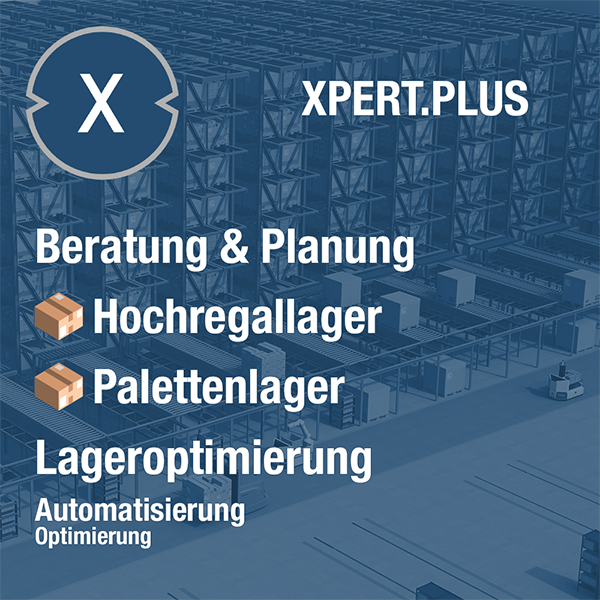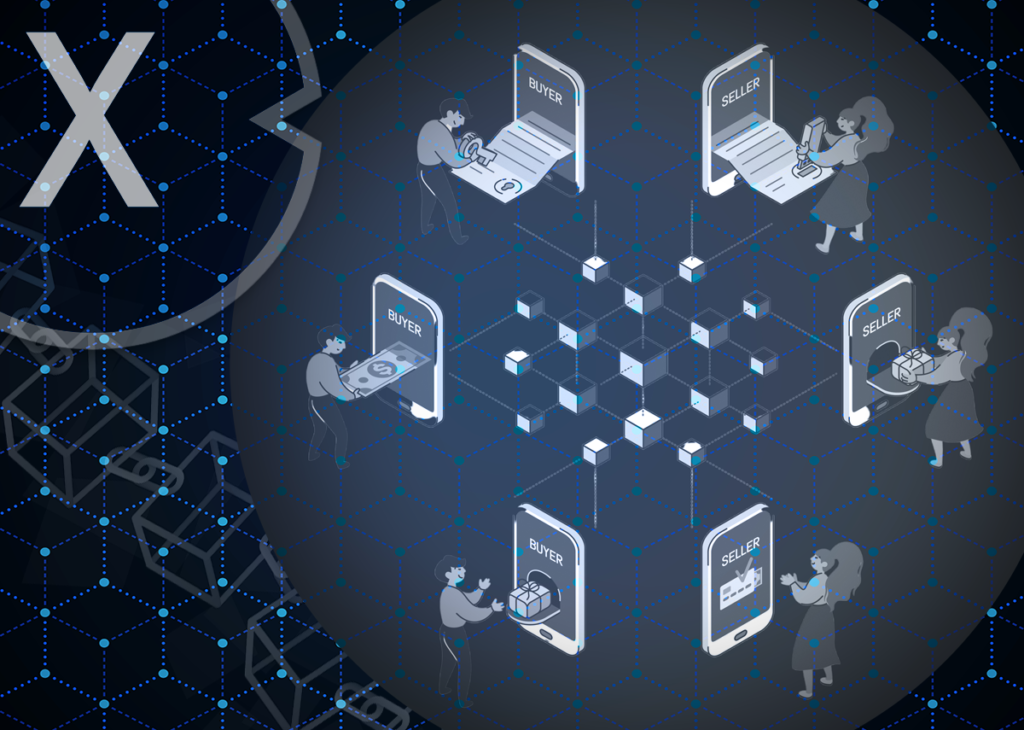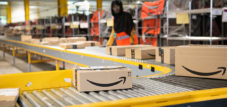Business Blockchain automatically makes the global supply chain secure with smart contracts
Language selection 📢
Published on: July 26, 2023 / update from: July 26, 2023 - Author: Konrad Wolfenstein

Transparency and security: How business blockchain is revolutionizing business processes - Image: Xpert.Digital
What is Business Blockchain?
Business blockchain refers to the application of blockchain technology in entrepreneurial and business environments. The blockchain is a decentralized, distributed database that ensures transparency, security and immutability of transactions. In the business sector, this technology can be used in various ways to optimize processes and achieve increased efficiencies.
Here are some important features and application areas of Business Blockchain:
1. Decentralization
Business blockchains are decentralized networks that do not require a central authority to validate transactions or verify information. This increases trust between the parties by making manipulation or fraud more difficult.
2. Smart Contracts
Smart contracts are self-executing contracts that can be executed on the blockchain. They automate the execution of contracts once certain predefined conditions are met. This can speed up contract processing and reduce costs.
3. Supply chain management
Business blockchains can be used in supply chains to improve product traceability, verify the authenticity of goods, and increase supply chain efficiency.
4. Financial transactions
Blockchain technology can be used in payment and settlement systems to process transactions faster and more cost-effectively.
5. Identity management
Blockchain can be used to securely manage digital identities, which can reduce identity theft and fraudulent activities.
6. Data integrity
Blockchain technology makes it possible to store data securely and immutably. This allows company data to be protected from unauthorized access.
7. Cryptocurrencies
Although business blockchains are not exclusively linked to cryptocurrencies, they can use them for payments and incentive systems, for example to reward employees or partners.
➡️ Not every application requires blockchain and the technology also has its own challenges, such as scalability and energy efficiency. Companies must carefully consider whether integrating blockchain makes sense for their specific needs and goals before deciding to implement it.
Efficient Supply Chain Management with Business Blockchain - The future of supply chains
➡️ Smart contracts and proof of authenticity: Business Blockchain is revolutionizing the supply chain.
➡️ Optimized Supply Chains: How Business Blockchain Improves Inventory Management.
The business blockchain and supply chain refers to the application of blockchain technology in the field of supply chain management of companies. The supply chain includes the entire process that a product or service goes through, from the procurement of raw materials through production and distribution to sales and delivery to the end customer.
Traditionally, these processes in companies are often managed through a central database or various systems, which can lead to challenges such as a lack of transparency, inefficient processes and potential security risks. This is where blockchain comes into play.
Business Blockchain Supply Chain leverages the decentralized and distributed nature of blockchain to address these challenges and improve supply chain management. Some important features and advantages of business blockchain in supply chain management are:
1. Traceability
The blockchain enables transparent traceability of products and components along the entire supply chain. Every transaction, every step and every change is stored in a decentralized and immutable data block, creating a high level of transparency and trust.
2. Proof of authenticity
Companies can verify the authenticity of products via blockchain. This is particularly important for high-value products where counterfeiting could be a problem.
3. Efficiency
The automation and trust basis of the blockchain can optimize business processes in the supply chain. For example, smart contracts on the blockchain can automatically release payments once certain conditions are met.
4. Inventory management
Real-time access to information along the supply chain can improve inventory management. Companies can better track inventory and avoid shortages or overstocks.
5. Supplier management
Blockchain can help strengthen collaboration with suppliers by providing trusted information and transaction histories.
6. Quality assurance
The immutable nature of blockchain can help ensure the quality of products and identify quality issues more quickly.
➡️ Business blockchain in supply chain management can help increase efficiency, increase transparency, make fraud attempts more difficult and increase trust between parties in the supply chain. However, companies looking to implement this technology should carefully consider how they can integrate blockchain into their specific processes and ensure that it provides real value and addresses the company's existing challenges.
What is the supply chain?
The Logistics Supply Chain refers to the process of planning, executing and controlling the efficient transportation and storage of goods to get them from the manufacturer to the end user. The supply chain includes all the actors, resources, activities, information and technologies involved in this process.
The logistics supply chain is a complex network consisting of different stages and actors, including:
1. Procurement
In this phase, raw materials, components or finished products are purchased from suppliers and manufacturers to support production or distribution.
2. Production
Here the raw materials and components are assembled or processed into finished products.
3. Storage
Storage often occurs in warehouses and distribution centers to ensure a continuous flow of products through the supply chain.
4. Distribution
In this phase, the goods are transported to distribution centers, wholesalers, retailers or directly to the end consumer.
5. Distribution and sales
The products ultimately reach the end consumer through retail channels or directly.
➡️ The logistics supply chain is an ongoing process that is closely linked to other operational activities. An efficient supply chain is critical to making the right products available in the right place at the right time while optimizing inventory levels, minimizing costs and increasing customer satisfaction.
➡️ Modern technologies such as blockchain, the Internet of Things (IoT) and artificial intelligence (AI) are increasingly being integrated into the logistics supply chain to increase efficiency, improve transparency and increase security. By leveraging these technologies, companies can better monitor the supply chain, collect real-time data, create accurate forecasts, and identify and resolve bottlenecks or problems more quickly.
The actual strength of blockchain technology is still completely unrecognized - Top Ten Blockchain Applications
More about it here:
The real strengths of blockchain technology: security and smart contracts
More about it here:
The real strengths of blockchain technology: security and smart contracts
- Use of blockchain technology in global logistics – Image: Xpert.Digital
- Secure identity management with blockchain – Image: Xpert.Digital
Trust-building blockchain solutions for the logistics industry. Secure Identity Management with Blockchain: The Future of Supply Chains
More about it here:

Xpert.Plus warehouse optimization - high-bay warehouses such as pallet warehouses consulting and planning
Xpert.plus-logistics advice and logistics optimization-industry expert, here with its own 'Xpert.digital Industrie-Hub' of over 1,000 specialist contributions
Xpert.Plus is a project from Xpert.Digital. We have many years of experience in supporting and advising on storage solutions and in warehouse optimization, which we bundle in a large network under Xpert.Plus.
I would be happy to serve as your personal advisor.
You can contact me by filling out the contact form below or simply call me on +49 89 89 674 804 (Munich) .
I'm looking forward to our joint project.
Xpert.Digital – Konrad Wolfenstein
Xpert.Digital is a hub for industry with a focus on digitalization, mechanical engineering, logistics/intralogistics and photovoltaics.
With our 360° business development solution, we support well-known companies from new business to after sales.
Market intelligence, smarketing, marketing automation, content development, PR, mail campaigns, personalized social media and lead nurturing are part of our digital tools.
You can find out more at: www.xpert.digital – www.xpert.solar – www.xpert.plus


































